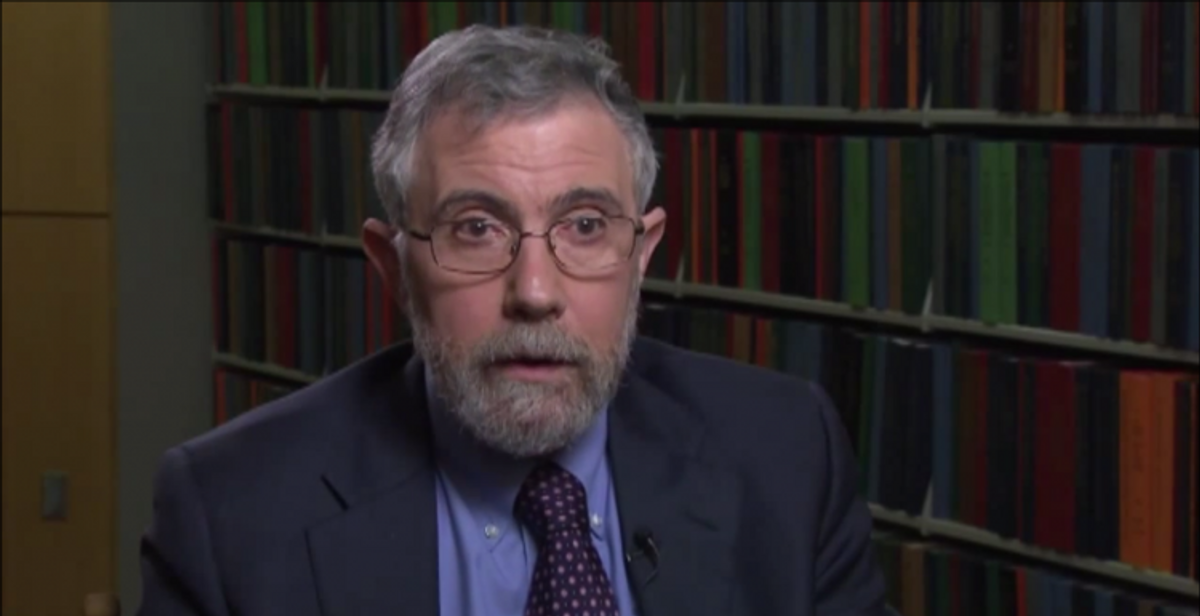In his most recent piece for the New York Times, celebrated economist Paul Krugman ponders the ways his chosen field failed to account for the Great Recession and prevent the past five years of sub-par growth and destructive austerity. But while Krugman grants that many economists failed to see the Great Recession coming, he argues that economic orthodoxy actually offered the right analysis for the crisis of recent years — it's just that the rich and powerful didn't like the prescriptions.
"[P]olicy makers and politicians have ignored both the textbooks and the lessons of history," Krugman writes. "And the result has been a vast economic and human catastrophe, with trillions of dollars of productive potential squandered and millions of families placed in dire straits for no good reason."
After reprising an old saw of his, the story of how Very Serious People advocated austerity despite the fact that the American economy was suffering from a lack of demand, Krugman claims that know-nothing politicians (and ones who did know better, like President Obama) were able to push self-destructive policy because "most people find the logic of policy in a depressed economy counterintuitive."
Contrary to what people like John Boehner or Obama himself once argued, a large economy managed by a government that prints its own currency is not like a family, Krugman notes; it doesn't need to respond to every economic problem by "tightening its belt."
Ultimately, however, Krugman places the blame on political and economic power imbalances. It's not a coincidence, he implies, that the policies pushed by many politicians — forms of austerity, mainly — were to the liking of wealthy and powerful people who resent the welfare state and oppose public spending. "[P]eople whose real goal is dismantling the social safety net have found promoting deficit panic an effective way to push their agenda," Krugman writes.
More from Krugman in the New York Times:
And such people have been aided and abetted by what I’ve come to think of as the trahison des nerds — the willingness of some economists to come up with analyses that tell powerful people what they want to hear, whether it’s that slashing government spending is actually expansionary, because of confidence, or that government debt somehow has dire effects on economic growth even if interest rates stay low.
Whatever the reasons basic economics got tossed aside, the result has been tragic. Most of the waste and suffering that have afflicted Western economies these past five years was unnecessary. We have, all along, had the knowledge and the tools to restore full employment. But policy makers just keep finding reasons not to do the right thing.



Shares